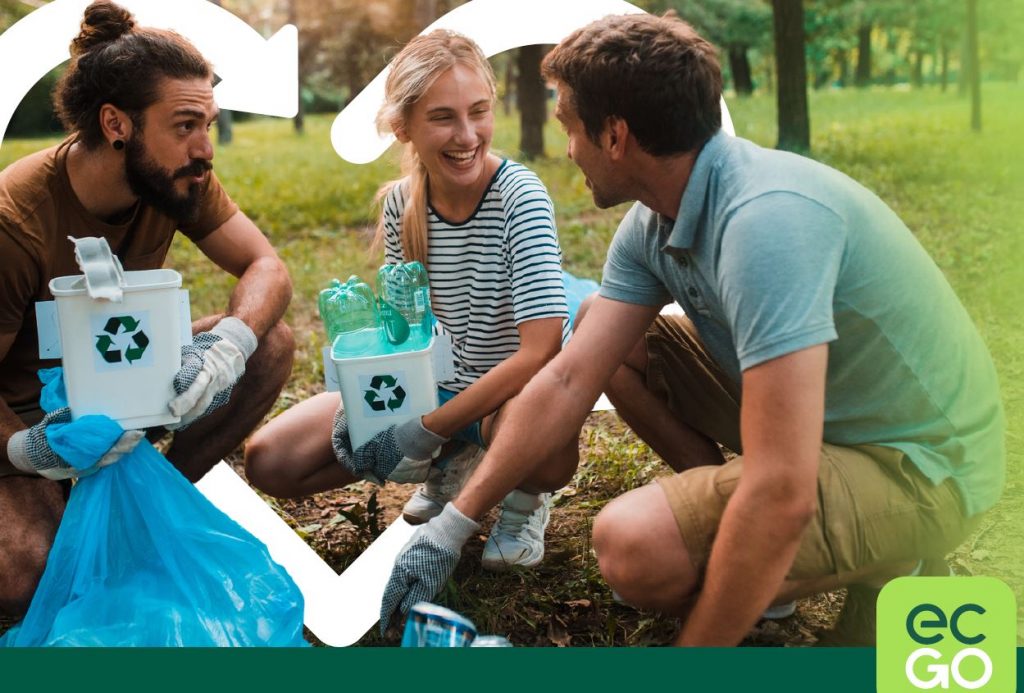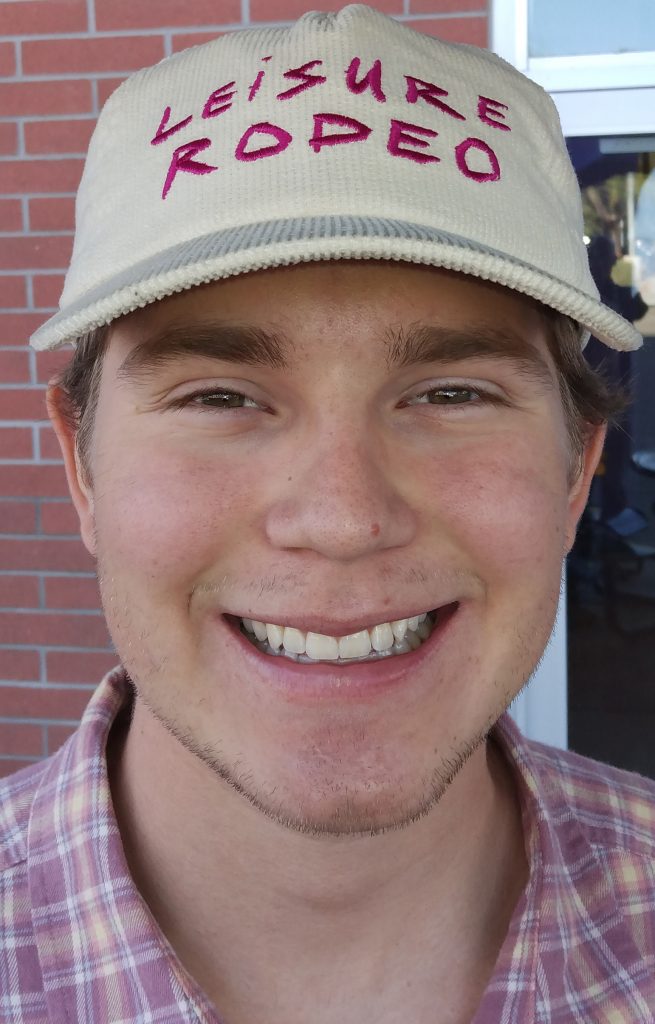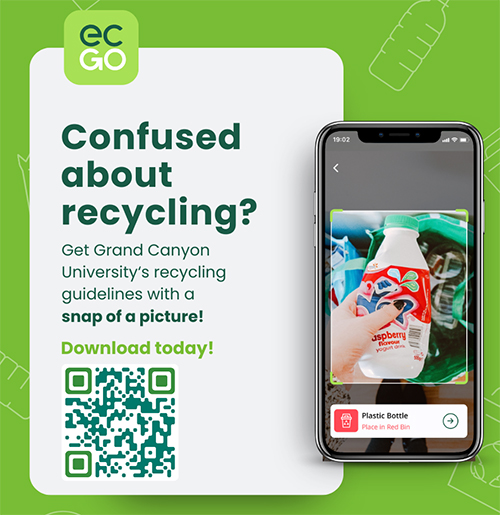
Grand Canyon University will compete against other universities to become a recycling champion in a contest that starts today.
The America Recycles Day Challenge features the ECGO mobile app, which students use to take photos of their trash, learn what is recyclable and earn points toward rewards for Chick-fil-A, Amazon, Panda Express and more. GCU will face 14 universities, including Auburn, the University of South Carolina and Georgia State University, where it started.
ECGO began with a group of GSU students who wanted to close the knowledge gap on recycling.

“The problem is that many students often do not recycle the right materials,” said ECGO founder Nicole Toole. “When we don’t recycle clean or recyclable materials, it leads to high contamination in recycling bins, resulting in higher recycling costs and lower diversion rates.”
Soda and water bottles and cans are the biggest issue at GCU, said Associated Students of GCU Sustainability Director Noah Voss, who is helping lead the challenge, which runs through Nov. 17.
The sophomore said recycling not only helps beautify the surroundings but benefits the environment by reusing materials instead of making new ones and creating loads more trash.
Toole agrees: “Waste management is a big part of climate change as well. Landfill waste makes up 14.3% of methane emissions, according to the EPA, and methane is 25 times more potent than CO2 (carbon dioxide). When we think about climate change and how we can make a difference, an easy first step is making sure we find sustainable methods of disposing of waste.”

GCU has placed numerous blue bins around campus for recyclable materials with additional bins to arrive soon. New purple recycle bins will be added on campus to match the large purple recycling dumpsters in student housing areas.
Elease Foster, Senior Director of Facilities Operations, said it couldn’t come at a better time. Too many recyclable plastics and cans are not put in recycle bins, and cardboard is often thrown in the regular trash, where it can’t be recycled because it gets contaminated with food.
“After the challenge, we hope there is a better response to throwing items in the proper areas – their cardboards, their plastics, their cans and bottles,” Foster said.
She said the University will be able to gauge success through its new waste disposal provider, Republic Services, as well as the ECGO rankings during the 12-day competition.
“Even if we don’t win first place, we can be ranked, so obviously we want students to participate,” Voss said. “It’s a credit to our university that we are making an effort.”
As an environmental science major, he knows recycling is just the start of the conversation when it comes to being sustainable.
The next step?
“You don’t always need more. See the value of what you have,” he said. “You don’t always need a new jacket or water bottle. Sometimes the things you have are way more valuable because of the experiences you had with them. When we reduce the amount we buy, corporations reduce what they produce.”

Recycling tips
DON'T RECYCLE: Plastic bags, plastic food wrappers, plastic without recycling numbers, greasy food containers, food waste, yard waste, batteries, diapers, tissue, scrap metal, dishes, mirrors, hoses, toys, clothes, shoes, tools, plastic straws, Styrofoam, to-go lids, hardback books, holiday decorations.
PLEASE RECYCLE: Plastics (labeled 1-7 on inside of recycling arrows on product); metal cans; aluminum foil; steel; tin; aluminum; cardboard; newspapers; magazines; brochures; juice boxes; egg, ice cream and milk cartons; cereal and pasta boxes; envelopes; office paper; junk mail; greeting cards; and file folders.
For more information on recycling, go to RepublicServices.com
Grand Canyon University senior writer Mike Kilen can be reached at [email protected]



































































